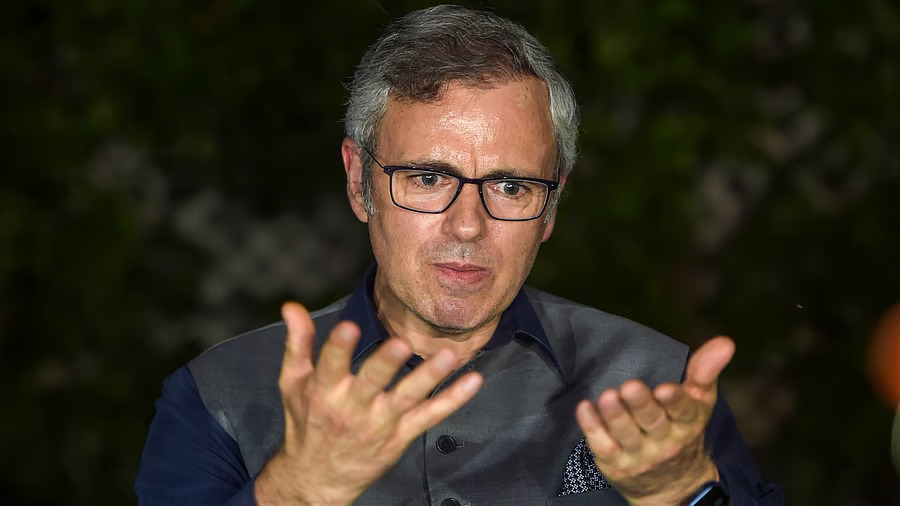In the ongoing maelstrom of Middle Eastern tensions, a striking voice from India has brought a fresh perspective to the global discourse. National Conference leader and former Jammu and Kashmir Chief Minister Omar Abdullah has raised a thought-provoking question regarding the recent escalation between Israel and Iran, asking bluntly: “What exactly did Iran do to provoke Israel?”
The remark, which he made while reacting to international developments, has sparked debates across political and diplomatic circles in India and abroad. At a time when most global powers are aligning themselves along traditional axes of support or condemnation, Abdullah’s comment underscores the need to revisit the broader geopolitical narrative and critically examine the often one-sided portrayal of such conflicts.
A Question That Cuts Through the Noise
Omar Abdullah’s inquiry is more than a rhetorical jab—it’s a challenge to the mainstream international narrative that typically paints Israel’s aggressive postures as defensive measures, while framing Iran’s actions as provocative or destabilizing. By turning the question around, Abdullah calls attention to the complexity and nuance often omitted from diplomatic and media analyses.
His comment comes in the wake of reports that Israel has launched military actions purportedly in response to perceived threats or provocations from Iran. These retaliations have included airstrikes in the region, targeted assassinations, and cyberattacks, as part of what Israel claims is its right to self-defense. Iran, on its part, has accused Israel of attempting to provoke a broader regional conflict and violating international law.
The remark is especially resonant in the current political climate, where any statement about Middle East tensions tends to spark polarized reactions. However, Abdullah’s question resonates with those who argue that power dynamics in global diplomacy often mask accountability and legitimate inquiry. His comment is an attempt to humanize a conflict that is often viewed through strategic, rather than humanitarian, lenses.
Context of Regional Escalations
The Israel-Iran rivalry has escalated in recent years, with flashpoints ranging from nuclear deals and proxy wars to cyber warfare and assassinations. Iran has been accused by Israel and Western powers of enriching uranium beyond agreed limits and supporting militia groups across the region. Israel, meanwhile, has been expanding its regional influence through military strikes and alliances, including recent normalization agreements with several Arab nations.
Yet critics of Israel’s policies argue that its actions often go unchecked by international bodies, particularly due to strong backing from Western nations. The United States, a key ally, continues to support Israel militarily and diplomatically, even as human rights organizations accuse Israeli forces of excessive use of force, especially in Palestinian territories and broader regional maneuvers.
It is in this context that Abdullah’s question becomes more than a soundbite. It reflects a demand for balanced scrutiny, calling on global powers to hold all parties to equal standards of accountability. Rather than accepting unilateral narratives, voices like his insist on evaluating actions in terms of their legality, morality, and long-term consequences.
Kashmir and the Global Perspective
Omar Abdullah’s perspective is also informed by the unique geopolitical context of Jammu and Kashmir, a region that has seen decades of conflict, militarization, and political suppression. Leaders from the region often relate to global conflicts through a lens of contested sovereignty, human rights concerns, and foreign policy double standards.
By questioning Israel’s justification for its aggressive tactics, Abdullah aligns himself with global human rights advocates who argue for a more equitable international system—one where power does not shield a nation from scrutiny and where every sovereign country, whether powerful or isolated, is held to the same moral and legal standards.
Reactions and Implications
The former chief minister’s comment has triggered a range of reactions. Supporters applaud him for highlighting a critical question that few mainstream Indian politicians have dared to ask, given the sensitive nature of India’s diplomatic ties. Critics, however, have accused him of oversimplifying a complex issue or of taking a political stance that could be interpreted as pro-Iran or anti-Israel.
Regardless of where one stands politically, it is evident that his question has reopened a necessary conversation—one about how we frame conflicts, who we choose to listen to, and what kind of global order we want to support. It calls upon citizens, governments, and media outlets to critically evaluate global military interventions and to examine the motivations and consequences of state actions, no matter how powerful the actor involved.
Moving Beyond Rhetoric
As the world becomes increasingly multipolar and interconnected, public figures like Omar Abdullah have a unique role in shaping dialogue that bridges the local and the global. His statement challenges people to move beyond surface-level media narratives and to ask difficult but essential questions about justice, sovereignty, and truth.
In times of global tension and uncertainty, such introspective voices can serve as catalysts for more balanced, fair, and humane foreign policy debates—something the international community sorely needs.
Sponsored
FACTS Transcripts
Apply for a University document anywhere
https://www.factstranscript.com
Quick Transcripts for popular Universities, check your University name now and get started. We help you to get your transcript application online which is accepted for use of IRCC.
No DD, NO Paperwork. 100% Authentic, Reliable.
FACTS Transcripts Charges · Reviews · Assam Universities · Home · Know your University










